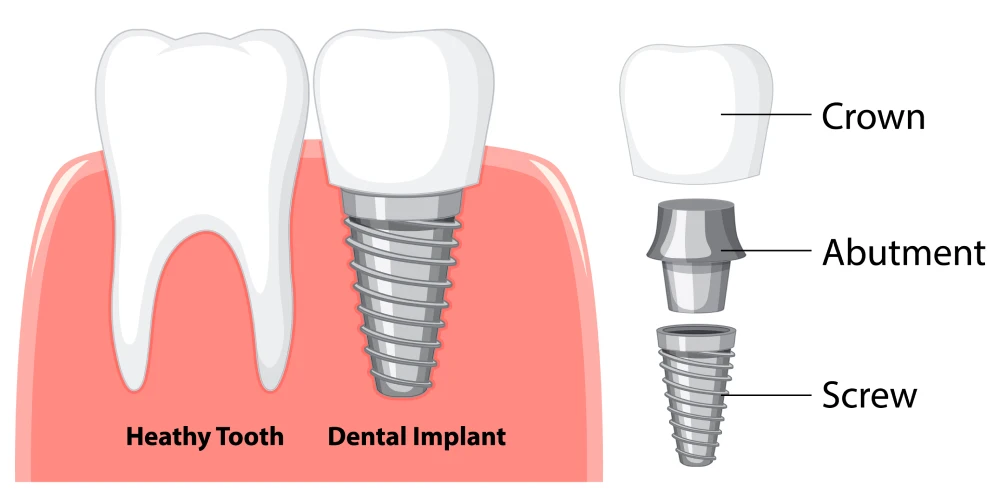Dental Implant Treatment
Revolutionary advancements in restorative dentistry have introduced dental implants as a game-changer, offering both functionality and aesthetics to those seeking permanent solutions for missing teeth. A radiant smile, which can brighten the world around us and leave a lasting impression, is now attainable through these innovative implants. However, despite their known durability and success rates, challenges can occasionally arise, prompting a closer look at dental implant failure and potential salvage options.
One might wonder: how long do dental implants last? These implants, heralded as a significant innovation in restorative dentistry, boast a lifespan spanning decades for many individuals, making them a worthwhile investment. Nevertheless, their longevity is contingent upon various factors, including oral hygiene habits, lifestyle choices, and overall health.
Dental Implant Failure & Salvage
To ensure the longevity of dental implants, it’s imperative to adhere to a stringent oral care regimen, attend regular dental check-ups, and promptly consult your dentist if any issues arise.
Like any medical procedure, dental implant surgery carries potential side effects. Immediately following the procedure, patients may experience minor discomfort, swelling, and bruising around the surgical site. Fortunately, these effects are transient and manageable with prescribed medications and proper post-operative care. It’s crucial to recognize that these side effects are a natural part of the healing process.
Although rare, dental implant failure can occur due to factors such as inadequate osseointegration, infection, poor oral hygiene, or underlying health conditions. Implant failure may necessitate removal, particularly if it compromises functionality or causes discomfort. However, modern advancements in dental technology have improved the success rates of salvage procedures, offering patients a second chance at implant success.
In cases where implant removal and replacement are not feasible, alternative treatments like bone grafting or different prosthetics may be considered. Early detection and prompt intervention are paramount to maximizing the chances of success.

How Do You Stop an Implant from Failing?
To ensure the longevity of your dental implants, it’s essential to follow these steps:
Attend Regular Dental Check-ups: Schedule routine dental visits every six months or as recommended by your dentist. During these visits, your dentist will assess the health of your implants and provide professional cleaning to maintain oral hygiene.
Follow Active Oral Care Routine: Brush your teeth at least twice a day with fluoride toothpaste and floss daily to remove plaque and food particles around the implant area. Use antimicrobial mouthwash as recommended by your dentist to further reduce bacteria.
Contact Your Dentist if Anything Happens with Your Implant: If you experience any discomfort, pain, or notice any changes in the implant area, contact your dentist immediately. Early intervention can prevent potential complications and ensure the longevity of your implants.
By following these practices consistently and staying proactive about your oral health, you can significantly increase the lifespan of your dental implants and enjoy their benefits for years to come.
In conclusion, while dental implant failure is uncommon, it’s crucial to be vigilant for signs and seek prompt treatment when necessary. With advancements in dental science, salvaging and replacing failed implants has become increasingly feasible. Regular dental check-ups, meticulous oral hygiene, and transparent communication with dental professionals are essential for safeguarding your dental implant investment.







